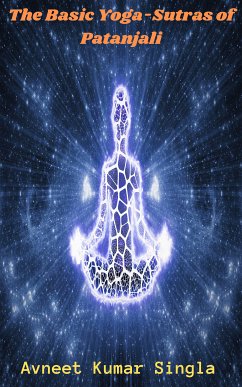This book is a collection of 195 Sanskrit sutras (aphorisms) on the theory and practice of yoga. The Yoga Sutra was compiled sometime between 500 BC and 400 AD by the sage Patanjali in India, who synthesized and organized knowledge of yoga from much older traditions. The yoga Stra of Patañjali was the most translated ancient Indian text in the Middle Ages, having been translated into about forty Indian languages and two non-Indian languages: old Javanese and Arabic. In the late 19th and early 20th centuries, it was in relative darkness and made a comeback in the late 19th century. It was founded in the 19th century due to the efforts of Swami Vivekananda, The Theosophical Society and others. It regained importance as a comeback Classic in the 20th century.In the 19th century, history shows that the medieval Indian yoga scene was dominated by the various other texts such as the Bhagavad Gita and the Yoga Vasistha, texts attributed to Yajnavalkya and Hiranyagarbha, as well as literature on hatha yoga, tantric yoga and Pashupata Shaivism yoga and not the Yoga Stra of Patañjali.The yoga tradition considers the Yoga Stra of Patañjali to be one of the fundamental texts of classical Yoga philosophy. The appropriation - and embezzlement-of the Yoga Sutras and their influence on later Systematizations of yoga were, however, questioned by scholars such as David Gordon White, but affirmed by others such as James Mallinson.Modern yoga scholars such as Philipp A. Maas and Mallinson regard the Bhasya commentary on the Sutras as Patanjali's own and the Sutras as his summary of older yoga accounts. The combined document is thus regarded as a single work, the Ptañjalayogastra.
Dieser Download kann aus rechtlichen Gründen nur mit Rechnungsadresse in B, BG, D, DK, EW, FIN, F, GR, IRL, I, HR, LR, LT, L, M, NL, PL, P, R, S, SK, SLO, E, CZ, H, CY, A ausgeliefert werden.

